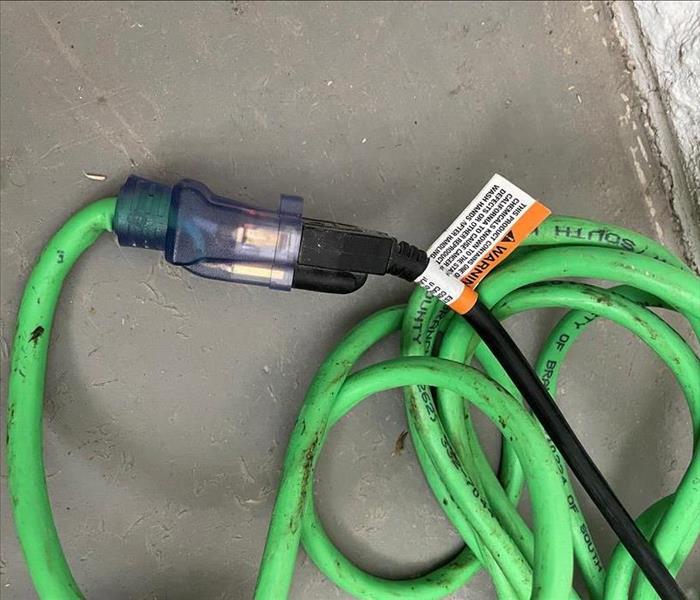Extension Cord Safety
6/22/2022 (Permalink)
Why choosing the right extension cord is important?
Extension cords are a common and convenient way to bring power to electrical devices when outlets are not nearby. However, when used without proper care and caution, they can become fire hazards and pose serious risks to your safety.
Follow these tips below to help keep your home safe when using extension cords:
Selecting extension cords
- Only buy cords that have been approved by an independent testing laboratory.
- For outdoor projects, use only extension cords marked for outdoor use.
- Read instructions for information about the cord’s correct use and the amount of power it draws.
- Select cords that are rated to handle the correct wattage of the devices with which they will be used.
- Consider the length you will need; longer cords cannot handle as much current as shorter cords of the same gauge.
- Choose cords with polarized or three prong plugs.
- For use with larger appliances, choose thick, round low gauge extension cords. For smaller appliances and electronics, you can use thin or flat cords.
Using extension cords
- Never remove an extension cord’s grounding pin to fit it into a two-prong outlet.
- Avoid powering multiple appliances with one cord.
- Neve ruse indoor extension cords, outdoors.
- Don’t plug more than one cord together.
- Don’t bend or coil cords when they are in use.
- Cover cord receptacles with childproof covers when not in use.
- Never use extension cords that feel hot to the touch.
Caring for extension cords
- Always store cords inside where they can remain dry.
- Unplug extension cords that are not in use.
- Throw away damaged cords immediately.
- Pull the plug, not the cord, when disconnecting from the outlet.
- Remember, extension cords are intended to be temporary wiring solutions. If you find you are using them on a permanent basis, this can create an unnecessary risk in your home.




 24/7 Emergency Service
24/7 Emergency Service
